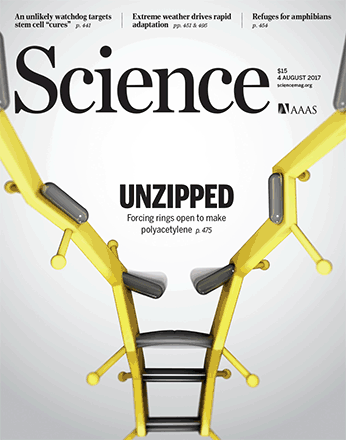 A recent pre-print showed that scientists in China can earn up to $165,000 to publish a paper in a top journal, but that’s not the only place where researchers can get some extra cash.
A recent pre-print showed that scientists in China can earn up to $165,000 to publish a paper in a top journal, but that’s not the only place where researchers can get some extra cash.
Recently, we conducted an informal search for other institutions around the world that offer cash prizes for publishing research — and were surprised at what we found.
People have raised concerns about these incentives, given that they often just overload top journals with submissions, but don’t necessarily increase publication rates. Furthermore, there are concerns that these kinds of incentives can encourage fraudulent publishing practices — such as fake peer reviews — out of countries such as China.
Check out where else scientists can earn almost $14,000 USD per paper, as part of our latest feature in Science, out today.
Like Retraction Watch? Consider making a tax-deductible contribution to support our growth. You can also follow us on Twitter, like us on Facebook, add us to your RSS reader, sign up on our homepage for an email every time there’s a new post, or subscribe to our daily digest. Click here to review our Comments Policy. For a sneak peek at what we’re working on, click here.
Receiving cash incentives might seem unsavory but it’s not so different from being recruited or promoted, or receiving a grant or an award, which is often based exclusively on publications in glam journals. Science, like any other enterprise, rewards those who are successful, and there is nothing wrong with that. The incentives aren’t the problem. The problem is that “success” deemed worthy of rewards is based on a metric that has little to do with the quality and the impact of the science being done.
Well… there is big money going around here, but most of the people working on it (associate editors for most publishers, and referees) are not paid, they (we) are in it mostly for the CV and, maybe, noble ideological reasons. There is thus a huge asymmetry between authors that may write for money, and those who have to decide on their manuscripts. Editors and referees work for much weaker incentives than paid authors. How little would it take for authors to contact editors and referees, and find a bargain? This is also quite a problem I believe.
Some major Indonesian universities also hand out incentives to those publishing in Q1and Q2 journals, however, the effect on scientific output is somewhat negligible since our research facilities are so crap or even non-existent.
In my former department (in Europe), the non-tenured junior group leaders would earn 500 euro (550-600 USD) for each paper in a journal with an IF>5. The money would later be spent on books, conference fees, trips, equipment… I later found out it was a deal between the university heads and the department supposedly to enhance productivity in the department. I was happy to get such kind of money of course, but at the same time I felt somehow insulted. Indeed, it did not change my way of working as I do not think I was lazier or dumber before that rule was installed. University administrations seem to think that we, lazy people with no permanent position, need a carrot in addition to the stick to do our job. As a reviewer, I also often receive manuscripts which clearly do not have the level corresponding to the IF of the journal. Authors just take a chance, possibly because there is cash to be earned in addition to pride and ego satisfaction. This is a real waste of time for the reviewer, because it takes me much more time to explain why I recommend rejection of a bad manuscript than publication of a good one.
The American system of pay for professors is despicable itself.
A professor shouldn’t be able to draw pay from a grant they’ve collected. “9 month contracts” with the expectation that you will take additional money from grants should be banned.
A-star doeas the same.
Agency for Science, Technology and Research (A*STAR) in Singapore? Do you have a source outlining the reward program?
Fundamental: Everything must be monetized, graded in the marketplace – what else to expect? The Truth be Damned. Grant awards determine salaries, publication journals prescribing additional compensation, next level could be by the pound or kilo – why don’t we just open it all up to a popularity contest and auction.